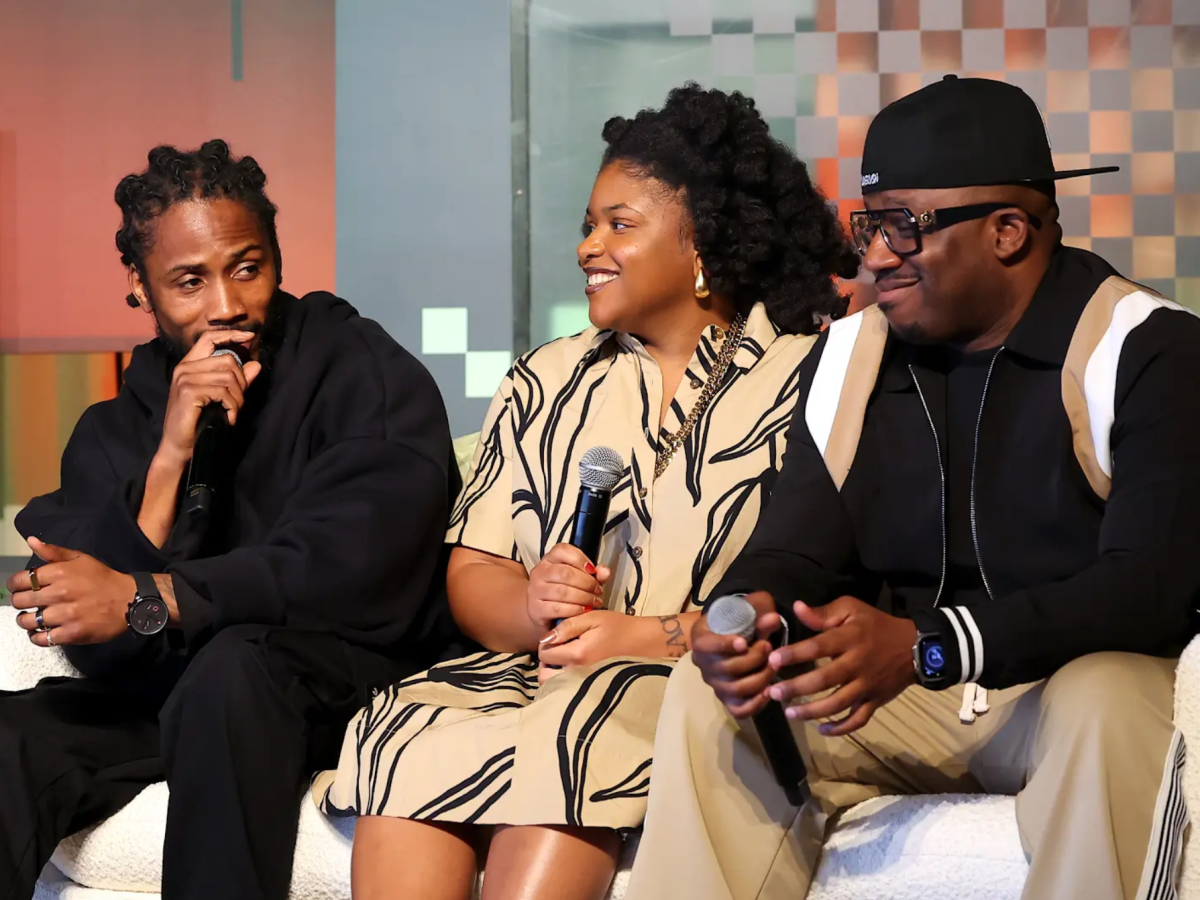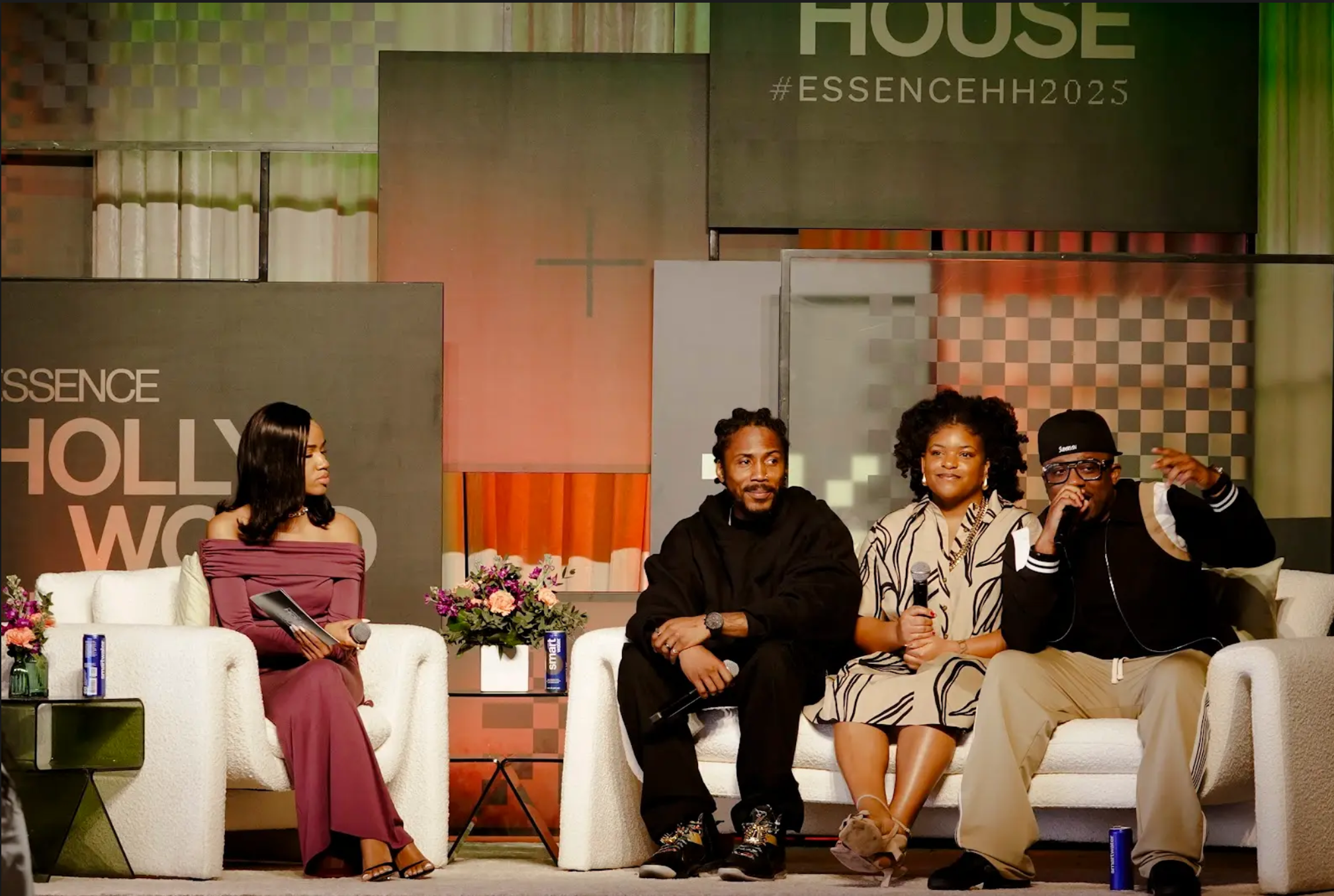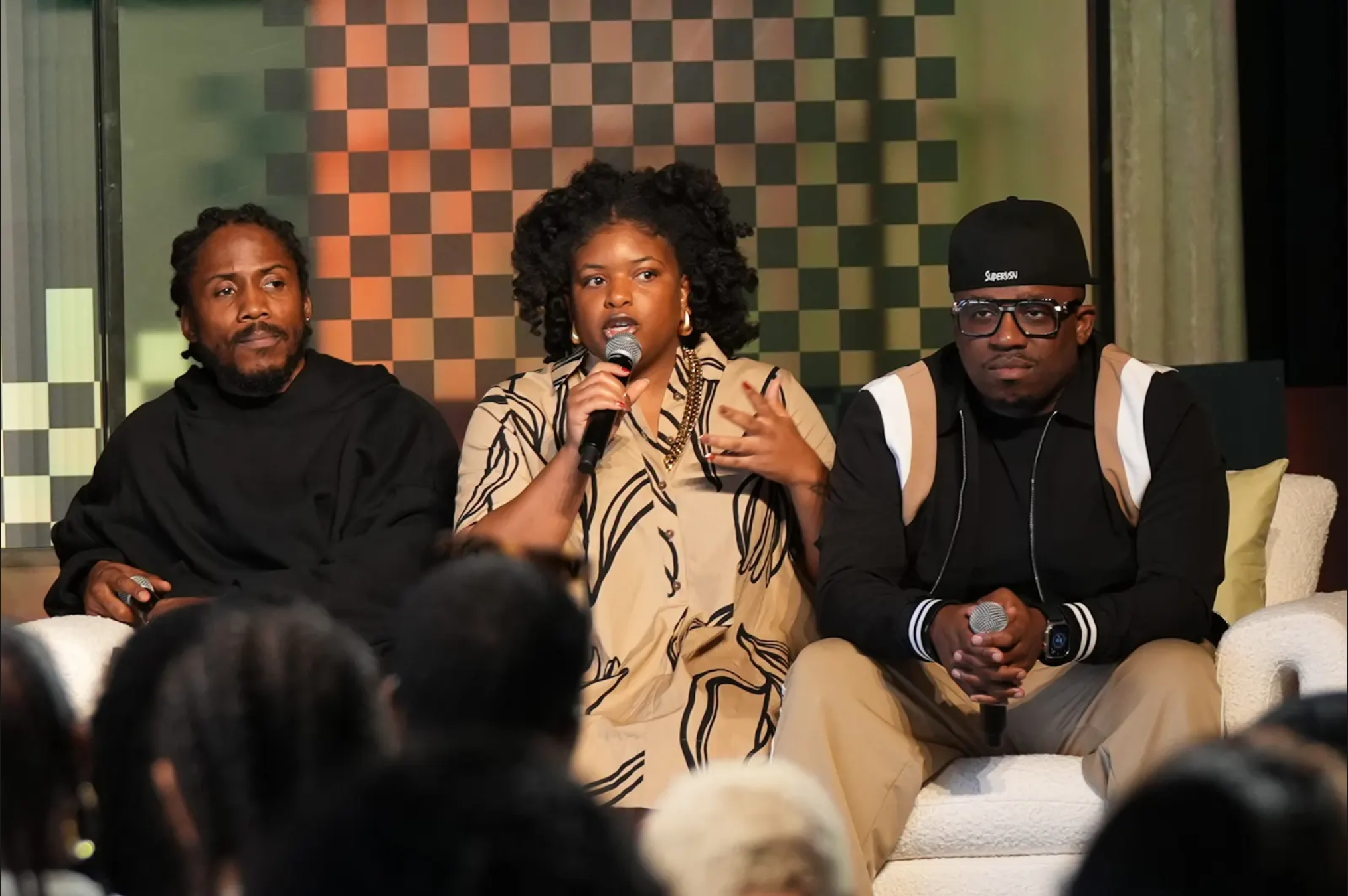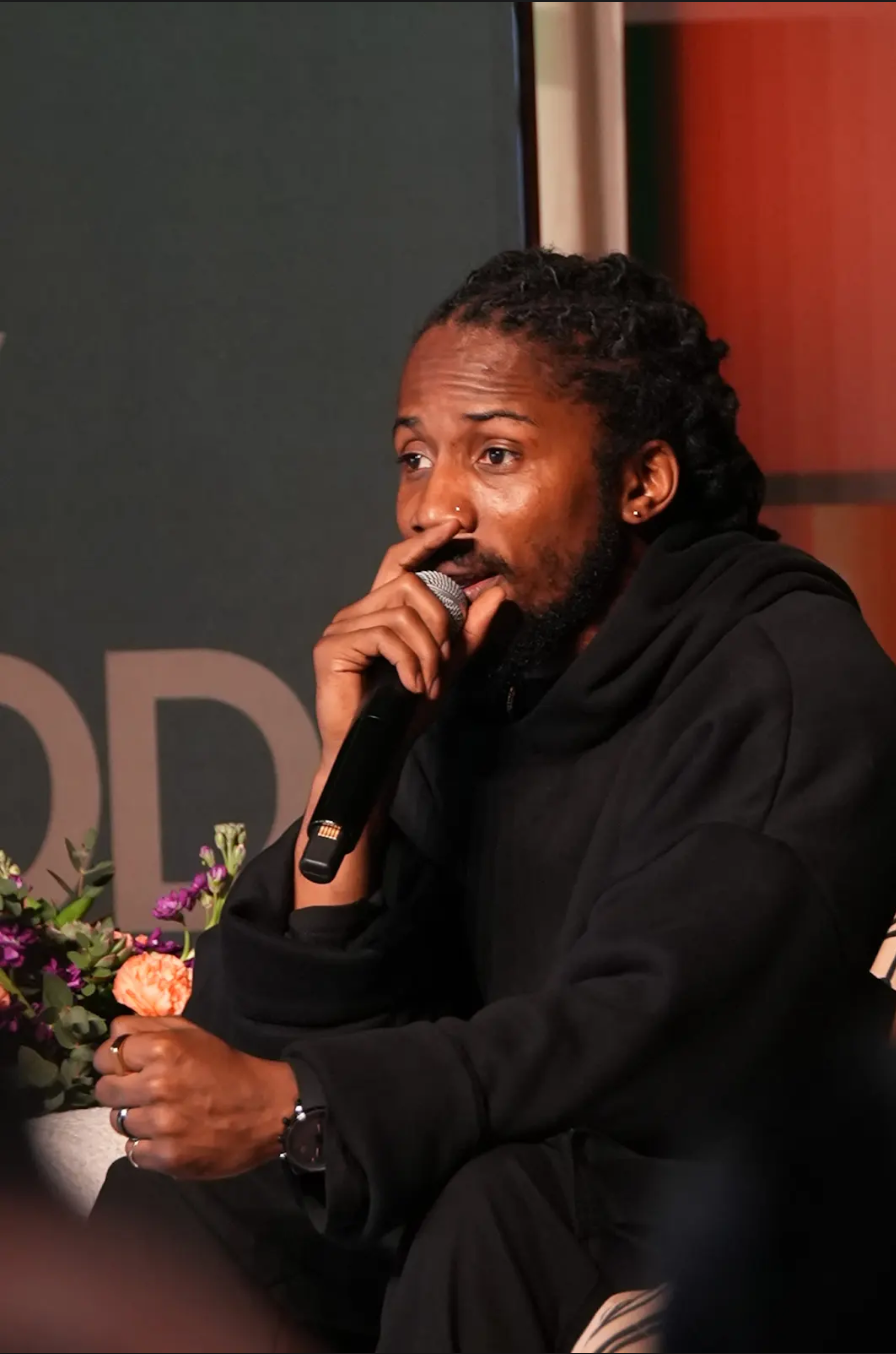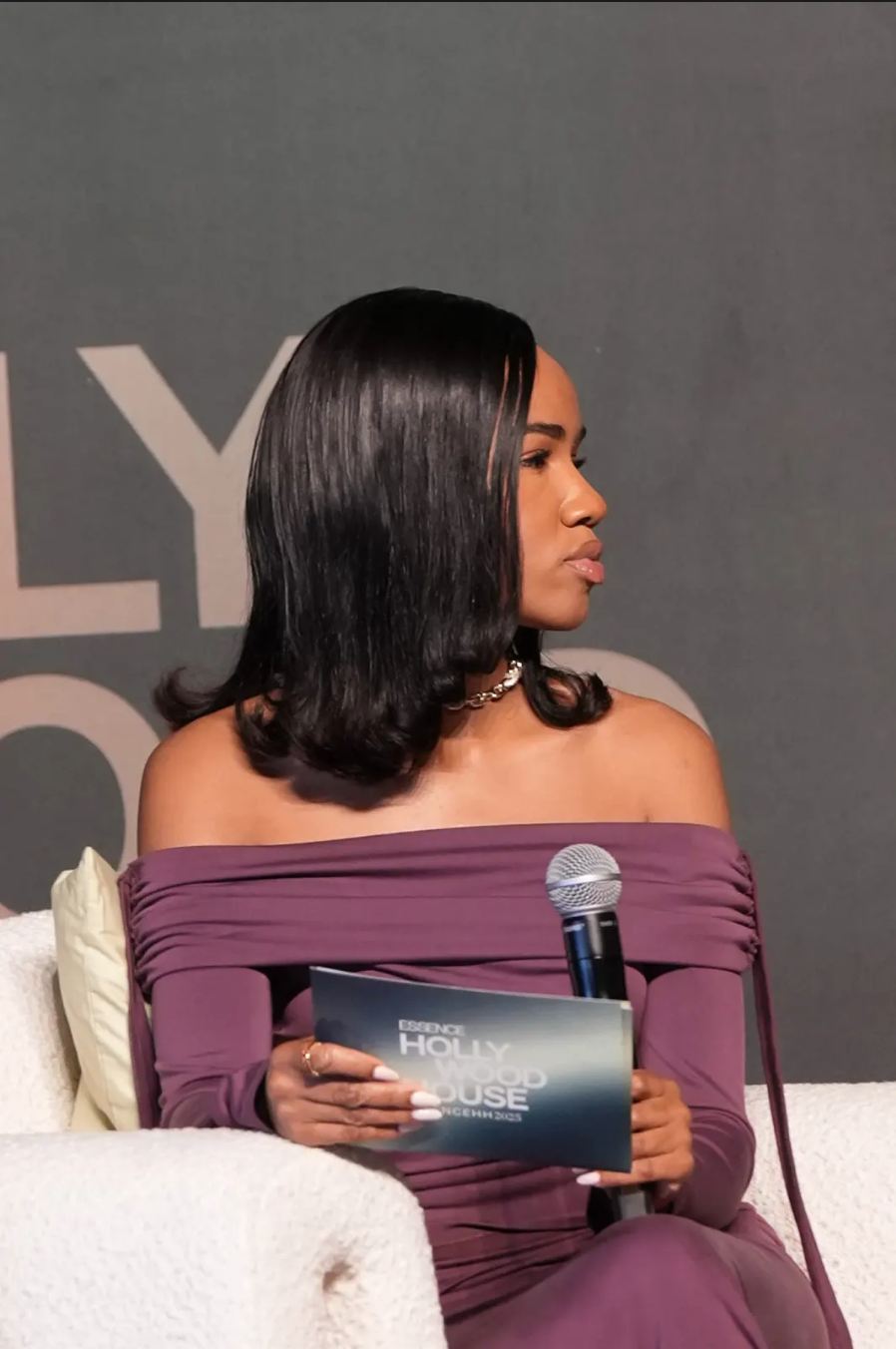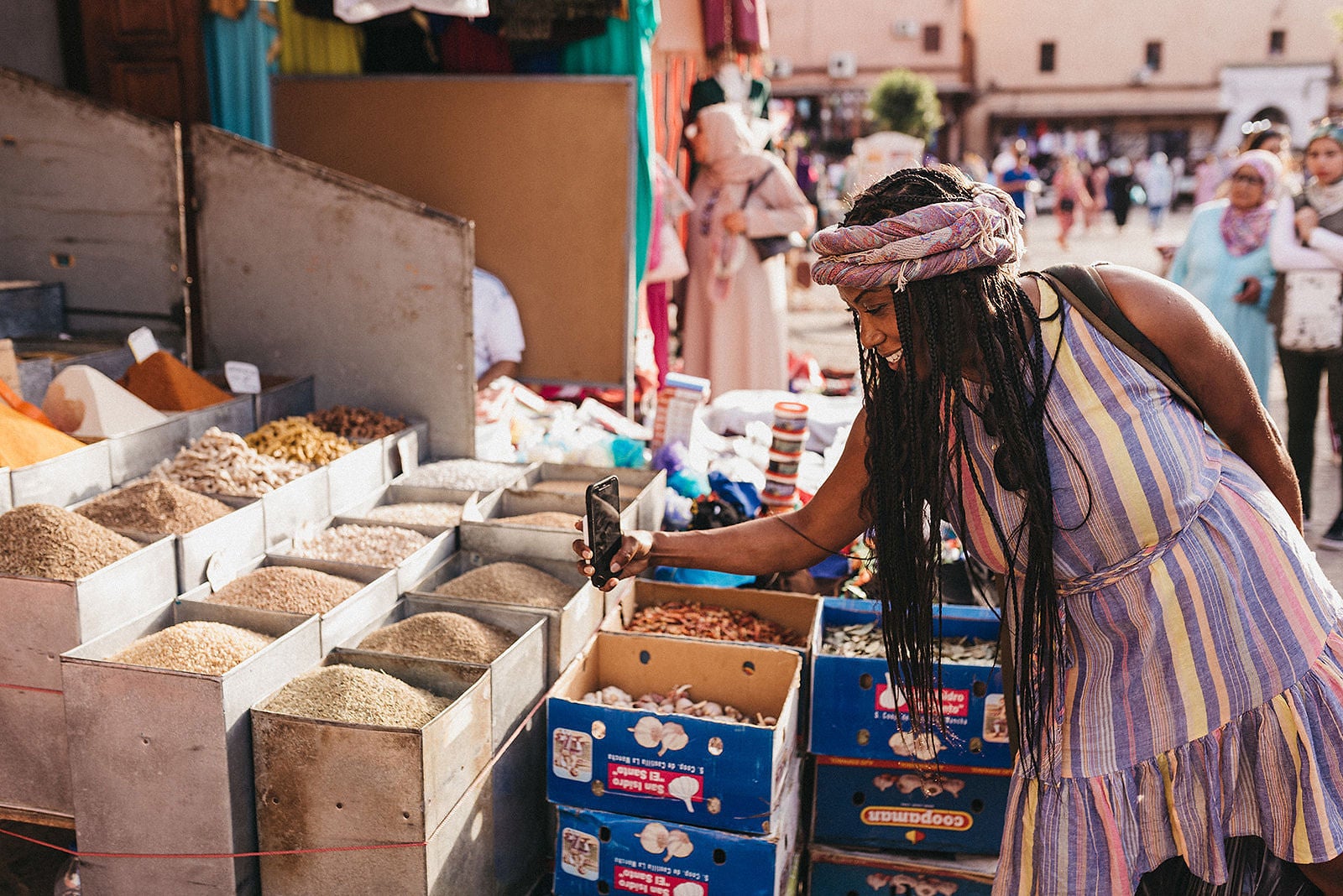
Some of us were riding bicycles with training wheels at the age of five while others were learning how to throw down in the kitchen. Chef Nyesha Arrington, a winner of the Food Network’s Chef Hunter, is an example of the latter. Her love for food began budding during cooking sessions with her maternal grandmother. Seeing as the chef is a melting pot of cultures (she’s a Black and Korean woman), her palette was introduced to a wide range of flavors from a young age. She has used this knowledge of diverse foods to build a successful career in a relatively competitive space.
The California native recently had the chance to be introduced to even colorful foods on a trek to Morocco. It was organized by Modern Adventure—a B-Corp and climate neutral travel company that exposes people to unique excursions by partnering them with a tastemaker who is excelling in their craft. The eight-day trip was comprised of an exclusive culinary look at Marrakech, Fes and the Atlas Mountains alongside the award-winning chef.
During the journey, Arrington and her accompanying travelers explored many culturally rich parts of the North African country, which borders the Atlantic Ocean and Mediterranean Sea. They also spent time intentionally roaming through marketplaces and hiking up the Atlas Mountains. The highlight could easily be Arrington collecting spices, cactus honey, olive oil and other ingredients fresh from the land, which she would later use to create an authentic Moroccan dinner experience for her group.
ESSENCE caught up with Arrington to hear more about her Moroccan adventure and how it influenced her as a traveler and in the kitchen.
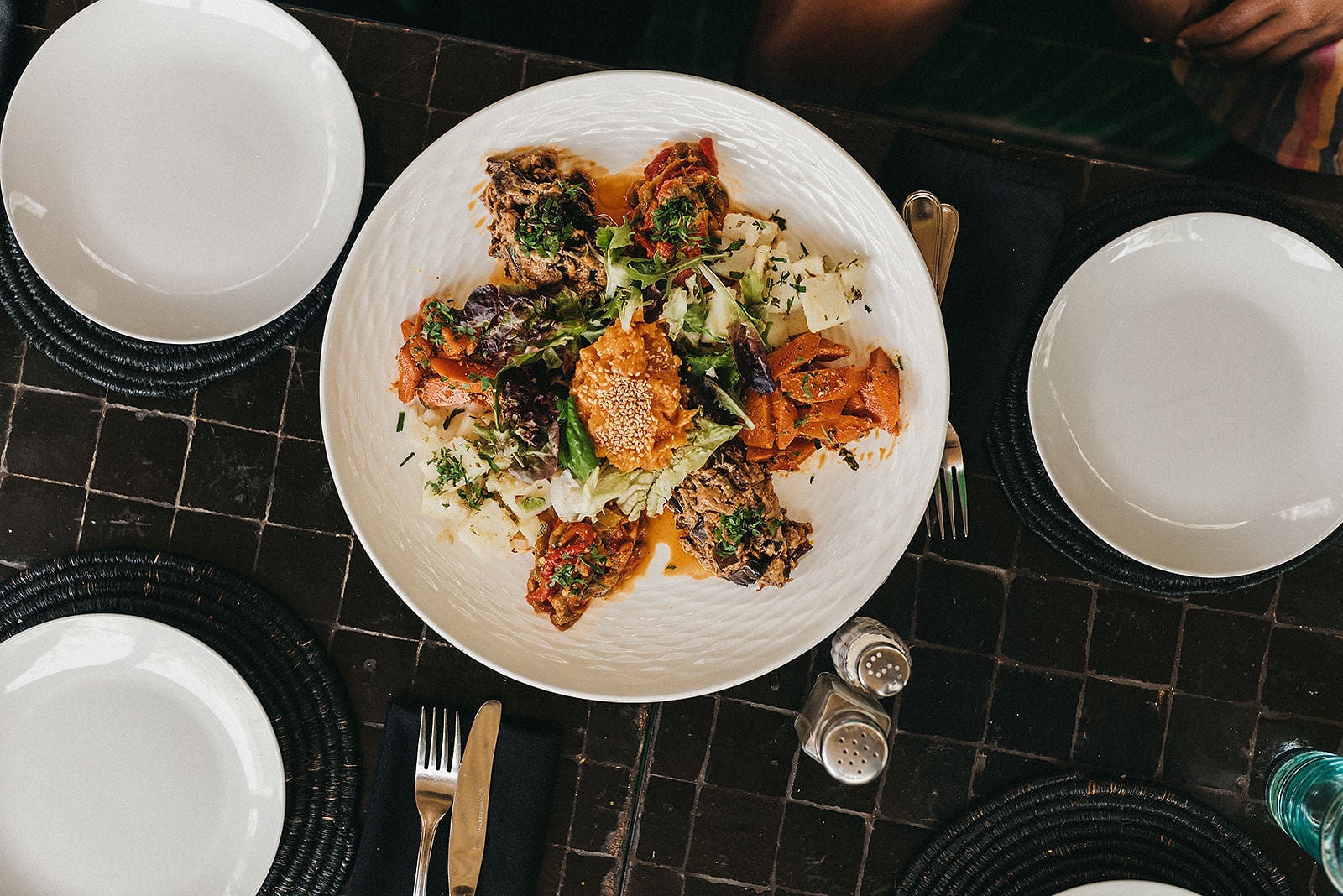
ESSENCE: How did traveling to Morocco inspire you as a chef?
Nyesha Arrington: Coming from a biracial family, I was exposed to many different flavors. And so ultimately, travel lends me the ability to weave this into my tapestry of life experience firsthand. When I was in Morocco, I was able to work with bread makers to learn these old-world techniques that span thousands and thousands of years. And now I’ll get to use those techniques for dinners that I do in the future.
And then, if there was meat used, you see it firsthand, the full circle of that animal being celebrated. Through the milks, through the meat itself, through the skin, through the tanneries. They were making leather out of the actual skins of the animals.
I really respect the usage and the sustainability aspects of letting nothing go to waste.
What are some common themes that you noticed between Moroccan culture, American culture, and your Korean culture?
I would say one similarity that I saw between the Moroccan culture and the American culture is gathering. Everyone wants to gather around a dinner table and share storytelling.
Korean culture is really about communal dining and lots of different dishes and eating in a setting of a family environment. So I would say the, the commonalities between the Korean side of my family, which is my mom’s side, my grandmother’s side, who’s a Korean immigrant, and my dad’s side’s from Mississippi and Los Angeles, are really around the gathering around the table.
I live in California, in Santa Monica, [and] plant-based cuisine is highly valued. So, I would say the ability to bring vegetables to life in Moroccan cuisine is something that resonated with me. You know, eating lots of different vegetables, tagines and couscous, that’s something from my journey and what I’ve experienced in American cuisine. Not talking hamburgers and hot dogs and all the American food that was once celebrated. I’m talking about sort of new, neo-progressive thoughtful cuisine where vegetables are the center of the plate and may be an accent. I think that Moroccan culture really celebrates that.
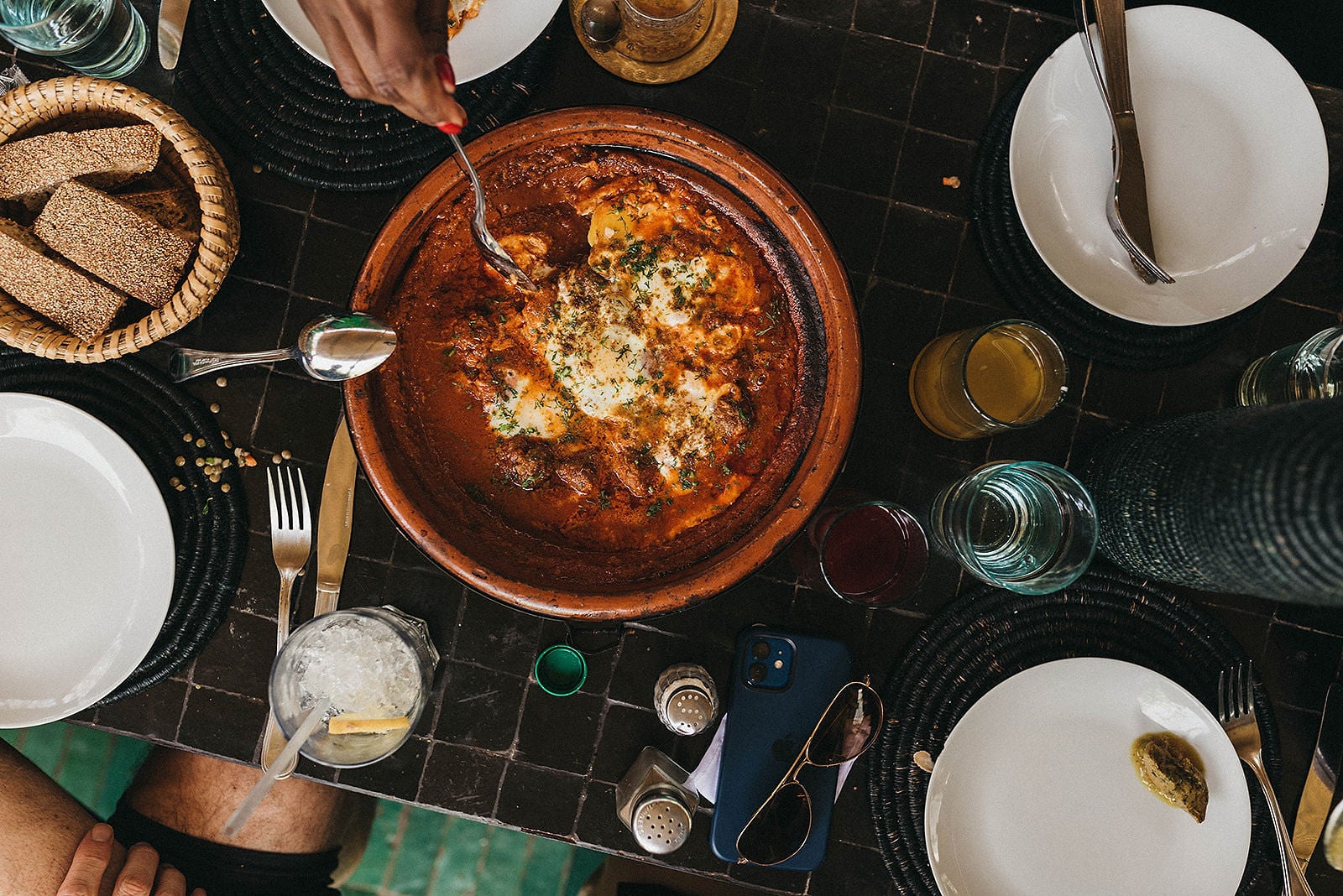
How was it to take travelers through Marrakech and Fes?
These people, I’ll know [them] for the rest of my life. They were some of the most salt of the earth, impeccable, inspiring minds. You have to be a certain archetype of human to willingly subject yourself and to put your life in the hands of another.
We walked through these amazing markets. I got a bunch of dates and amazing spices and enjoyed lots of amazing teas. And then in between Marrakech and Fes, we stopped in the Atlas Mountains and went on literally the most impeccable hike of my life. And then, we visited this honey ranch and they had probably 25 different honeys that we tasted. And the most impeccable, very rare honey was this cactus honey that the bees create. So I bought some of that. I got some amazing olive oil from this winery that we visited.
Meanwhile, the rest of the team didn’t know that I was secretly plotting to take all of these elements that we found while we traveled through Fes and the Atlas Mountains and use them for us to cook together. I put the entire team in four teams of three and I gave them a [cooking] assignment. Each team had their task and I broke out the ingredients and I said, “These are the ingredients that I’ve collected on our travel” and I put on an amazing playlist that I curated based off the sounds of Morocco.
As a chef, how did your travels inspire you to experiment with flavors?
The very first chef that I ever worked for, Danny El Malay, was such an interesting person. He’s classically French trained. His parents–one was Japanese and one was Israeli, but he grew up in Morocco. When I was working with him, he would teach me all these amazing flavors and it stuck with me, but I never really got to pick those sort of taste memories back up throughout my cooking career until I got to Morocco.
There were so many touch points of memories that I haven’t thought about for 20 years. I was like, wow, this amazing Tova sauce or this spice, this amazing rock and tea. The tea there alone is a whole entire culture.
For me, I’m always on this constant pursuit as a chronic student of life to be on the search for new information. I don’t think for me, in the way that I chef, it’s only about my repertoire and my cuisine and things. My journey is really about trying to live the most robust life as possible. And the way that I dictate that is learning through the food of the people.
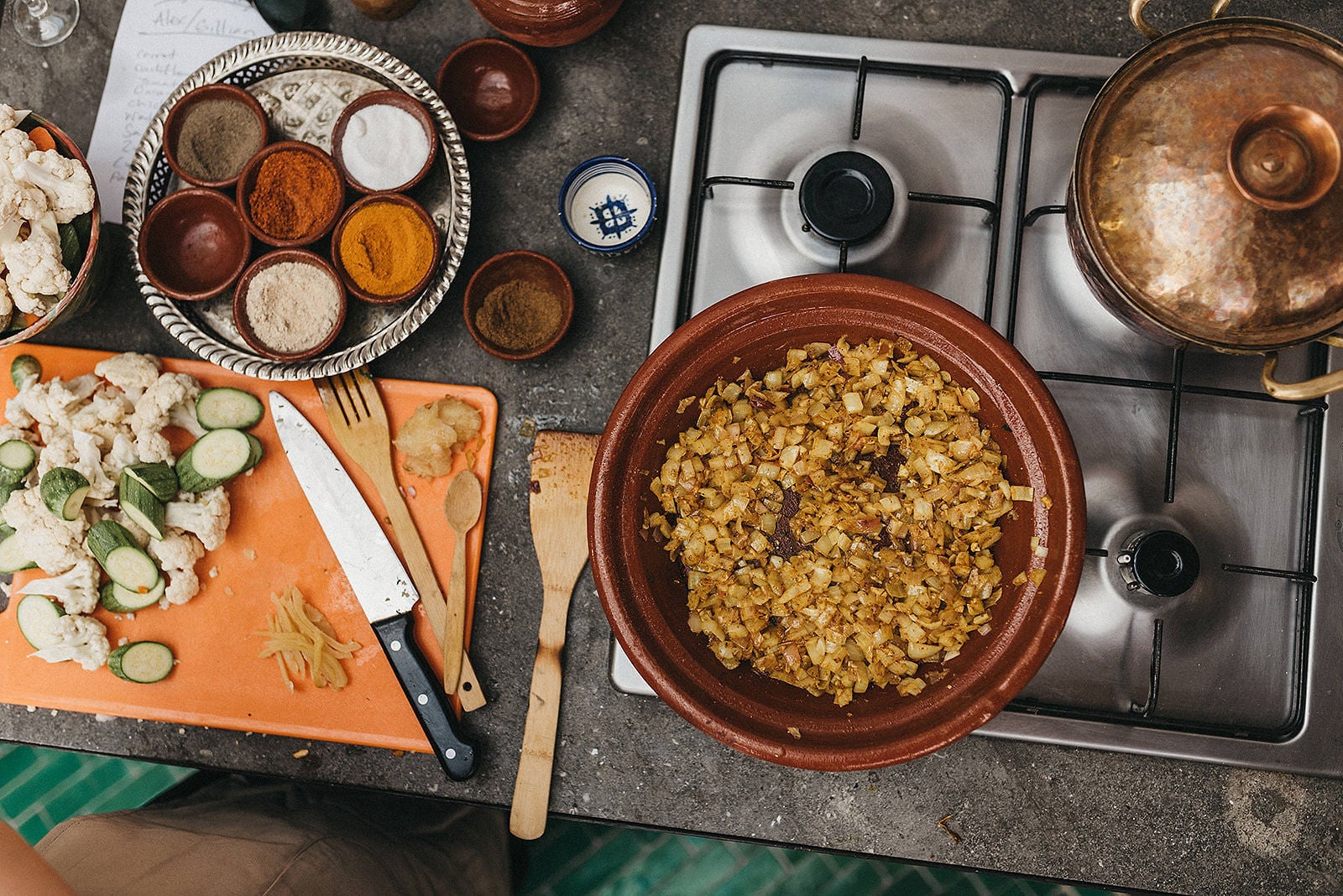
How did this trip inspire you as an everyday traveler?
I’m unconventional in the way that I chef, but I would say this; maybe I am a traveler first and then a chef. Maybe being a good chef has made me a good traveler.
Ultimately, I feel like travel is a way for me to experience different cultures and definitely is sort of a bridge to the past and a gateway into the future. I’m just a connection point and I won’t be on the planet one day, but hopefully I can inspire someone else to carry that on. So I’m just trying to live the most robust life possible to inspire other people.






